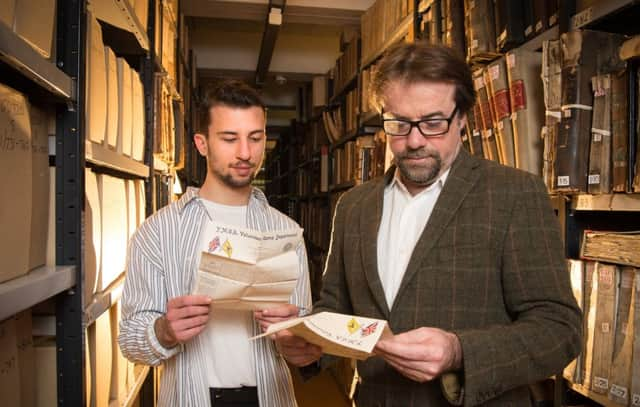Letters from POW give insight into Scots wartime life


Professor Archibald Allan Bowman began penning the touching notes to his wife, Mabel, shortly after he was taken prisoner at the Battle of the Lys in April 1918.
Seven months’ worth of the correspondence will be published by the University of Glasgow, 100 years after they were written “to ease the pain of separation”.
Advertisement
Hide AdAdvertisement
Hide AdProf Bowman went on to become the university’s Chair of Moral Philosophy from 1926 to 1936. He also taught at Princeton University in the US.
Censorship of soldiers’ mail during the First World War meant the couple would not have received the letters in order, and in some cases, there would have been a delay of a few weeks.
AA Bowman, born in Beith, Ayrshire, married his wife, Mabel Stewart, in 1912. The couple, who both studied at the University of Glasgow, went on to have three children.
When the First World War broke out, Prof Bowman was granted a leave of absence to join the British Army. He joined the Highland Light Infantry in 1915, but was taken prisoner at the Battle of the Lys – also known as the Fourth Battle of Ypres – in April 1918 and held until November.
Petros Aronis, a history of art student from Athens, has curated a social media project on Instagram based on the correspondence, called Letters from A Prisoner of War 1918.
Mr Aronis said: “There are beautiful and touching sentiments expressed in the letters. It also shows the vital role those on the home front had in providing prisoners of war with food and provisions parcels to keep them feed and clothed in the camps.
“I also have tried to highlight how the letters were impacted by the war. For some of AA Bowman’s letters, the censors used black ink on top of the writing, and in Mabel’s case the censor cut out parts of her letters.”
Despite the censorship, the letters paint a picture of life in prisoner of war camps. Prof Bowman’s letters speak of his isolation from the outside world. But he wrote of how he was kept himself busy by running classes to teach his fellow PoWs, including German lessons. He also wrote Sonnets From a Prison Camp.
Advertisement
Hide AdAdvertisement
Hide AdAnd the letters give a glimpse into life in wartime Scotland.
Tony Pollard, professor of conflict history and archaeology at Glasgow University, said the letters offer a “remarkable insight”.
He said: “This student research project also helps to bring a new understanding to the documents, showcasing the letters as historical objects which tell their own special story of war censorship.”